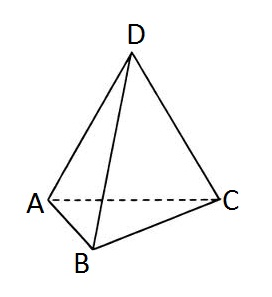Codeforces 166E Tetrahedron
来源:互联网 发布:信誉源码 编辑:程序博客网 时间:2024/06/10 09:40
0 0
- CodeForces 166E Tetrahedron
- CodeForces 166E Tetrahedron
- Codeforces 166E Tetrahedron
- CodeForces 166E Tetrahedron
- CodeForces 166E Tetrahedron
- codeforces 166E Tetrahedron 数学题
- codeforces 166e Tetrahedron 水dp
- CodeForces 166E -Tetrahedron解题报告
- Codeforces 166E Tetrahedron(dp)
- codeforces 166-E. Tetrahedron(预处理+dp)
- CF problem 166E Tetrahedron
- E. Tetrahedron
- Codeforces Round #113 (Div. 2) E. Tetrahedron dp
- Codeforces Round #113 (Div. 2)E---Tetrahedron(矩阵,水题)
- CodeForces 166'E
- CodeForces 166E--规律
- codeforces 163E e-Government
- 【Codeforces 163E】E-Government
- linux下最常用的命令
- NSMutableString可变字符串的定义及常用方法
- HDU 5119 Happy Matt Friends(DP)
- Testlink实验心得
- 最简单的单身模式
- Codeforces 166E Tetrahedron
- 【工具系列一】——Tomcat的基本配置
- 【图像配准】基于灰度的模板匹配算法(三):划分强度一致法(PIU)
- Ubuntu12.02 NFS安装与OK6410
- 通过GDB重新获得进程的输出
- 软件测试基础_什么是软件测试
- 一个数被3除余2,被5除余3,被7除余2,求满足条件的前N个数
- android开发步步为营之72:右滑关闭Activity
- ARM 体系结构与汇编指令



